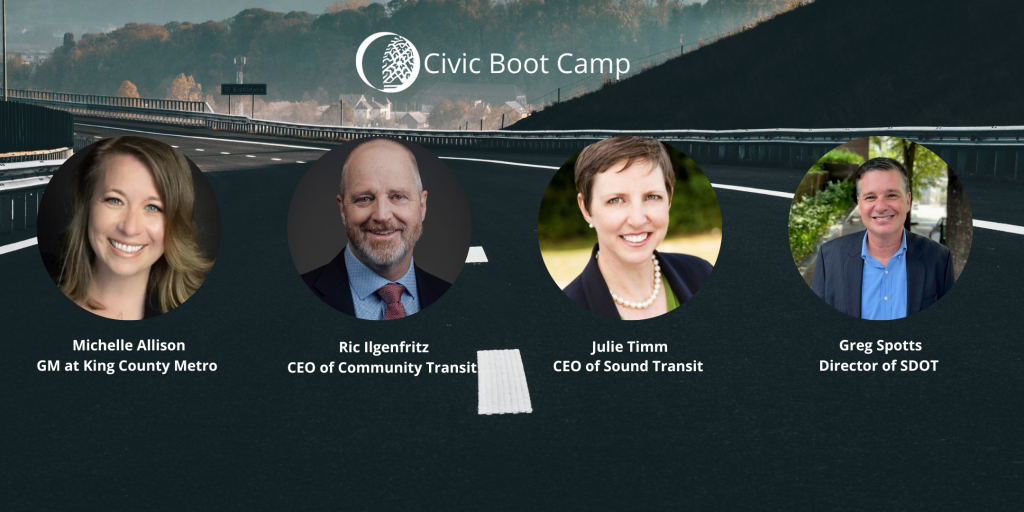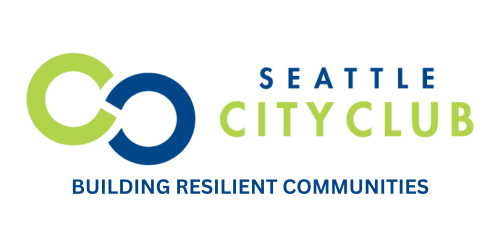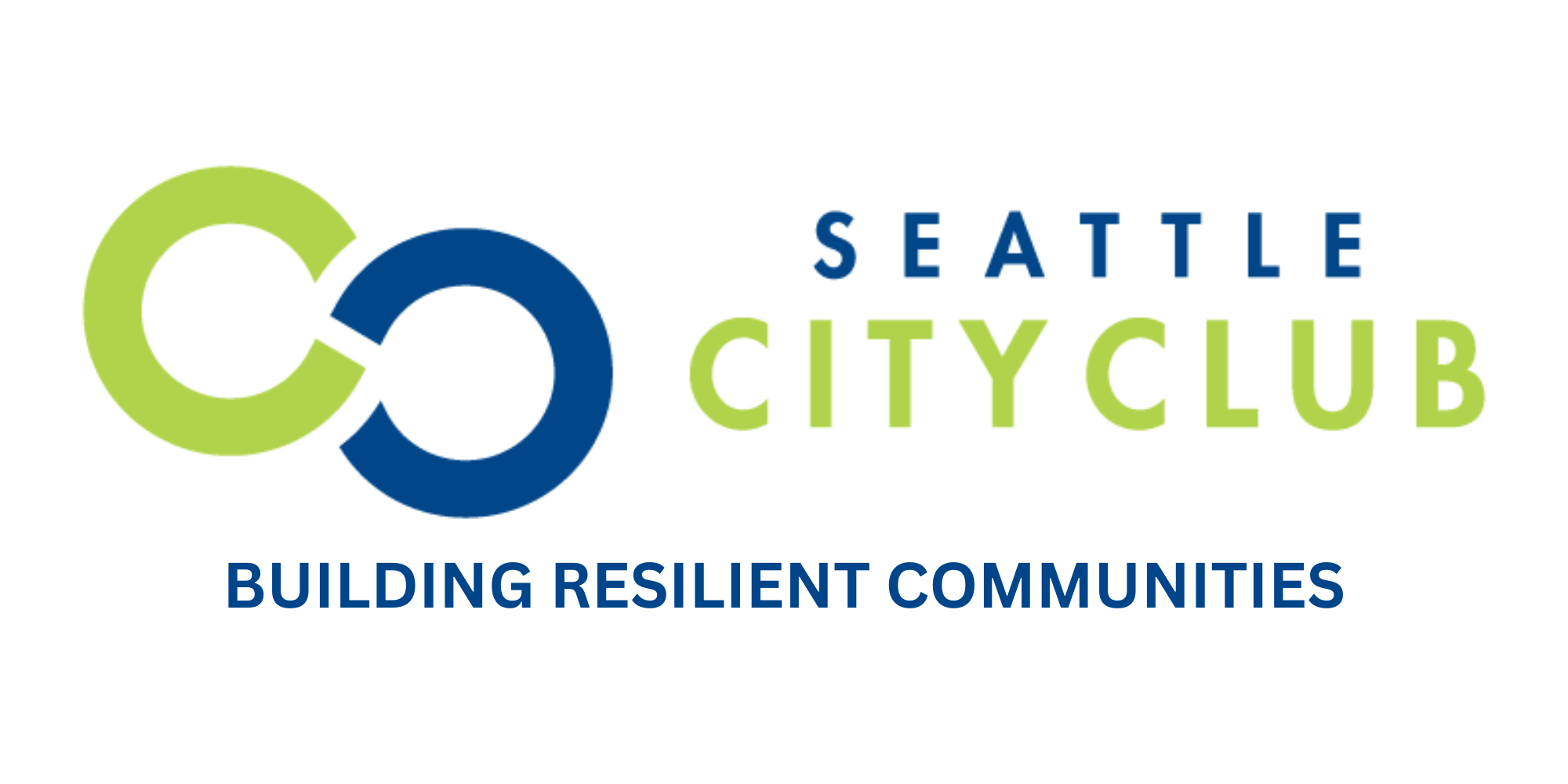On March 29th, we convened the executives of Sound Transit, King County Metro (Metro), Seattle Department of Transportation (SDOT) and Community Transit (CT) and leaders from the non-profits Commute Seattle, Transportation Choices Coalition and Hopelink to address our region’s overall transportation accessibility challenges, current projects and future plans. Attendees learned about the ongoing coordination between agencies to adapt to changing commuter/transit trends (especially due to the pandemic), manage road, rail and transit center construction and maintenance, and plan far out in the future while meeting current demand. They also heard how non-profits are working with the community and agencies to advocate for a seamless transportation system that meets the needs of commuters, sports fans and disabled and marginalized community members.
See the recording of the webinar here
Check out the Resource Guide for March 29th listing speaker bios, articles, links to resources and civic engagement ideas.

Speakers for Transportation Accessibility program on March 29
On April 14th, we held an in-person event with staff from Sound Transit, Metro, SDOT and CT to learn about transportation connections between Seattle and the north end of King County and Snohomish County. Participants learned about current and future light rail and transit center construction and maintenance, bus/train route coordination between downtown Seattle, Northgate and Lynnwood, innovative concepts like Community Transit’s Zip shuttle (on-demand cars/vans that bridge the gap between fixed bus/train lines) and how agencies incorporate more accessible designs for bus stops, elevators, ramps and parking.
Check out the Resource Guide for April 14th listing speaker bios, articles, links to resources and civic engagement ideas.
Check out the Resource Guide for April 21st listing speaker bios, articles, links to resources and civic engagement ideas.
Testimonial from Anna Zivarts, Director, Disability Mobility Initiative, Disability Rights, WA
“Civic Boot Camp created the opportunity to bring together people who work for transportation and transit agencies together with disabled community members. This not only allowed leaders in the transportation industry to see firsthand what barriers exist in our transportation system in Seattle, but also for community members to hear from our government agencies about what they are doing to address these gaps and make a more accessible city for everyone!”


